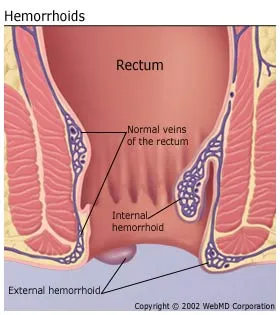Should You Most Likely To An Urgent Care Facility Or An Emergency Clinic For Abdominal Pain?
Content
- Therapy Options For Appendicitis.
- Stomach Discomfort Self
- Discover A Medical Professional
- Therapy For Stomach Discomfort In Grownups
Therapy Choices For Appendicitis.

An acute pain in the abdominal area can frequently be caused by an accumulation of gas. This can lead toperitonitis, a seriousinflammationof the abdominal cavity's lining.
Abdominal Pain Self
Gastritis may happen all of a sudden, or show up gradually over time. In some cases, gastritis can bring about ulcers as well as a raised danger of tummy cancer cells.
Discover A Doctor
Anethole promotes the tummy to secrete digestive system stomach juice and helps to minimize swelling of the stomach, both of which can bring you belly relief. The much easier the banana is to absorb, the more relaxing it can be for an indigestion.
Therapy For Stomach Pain In Adults
What can cause excruciating stomach pain?
Various causes of abdominal pain include, but are not limited to, indigestion after eating, gallstones and gallbladder inflammation (cholecystitis), pregnancy, gas, inflammatory bowel disease (ulcerative colitis and Crohn's disease), appendicitis, ulcers, gastritis, gastroesophageal reflux disease (GERD), pancreatitis,
- This is especially helpful if your appendix has ruptured and also the location around the appendix requires to be dealt with for infection.
- If you presume appendicitis, err on the side of caution and get clinical focus swiftly.
- Unlike appendicitis, which tends to create discomfort localized on the reduced appropriate side of the abdomen, gas pain can be felt throughout your abdomen.
- Your doctor or doctor will need to understand details regarding your signs and symptoms and case history.
- Open up surgery entails one cut in the reduced ideal abdomen.
- A fractured appendix can be a major health and wellness emergency.
In unusual circumstances, worried stomach may signify a hidden illness. If anxious stomach is a typical experience for you, check in with your physician. Stomach pain can be acute and abrupt in onset, or the discomfort can be persistent and also historical. Stomach pain might be small and also of no fantastic importance, or it can show a major problem involving one of the body organs in the abdomen.
How long does a stomach ache last?
Call your provider if you have: Abdominal discomfort https://pbase.com/topics/marinklm1k/monogamy010 that lasts 1 week or longer. Abdominal pain that does not improve in 24 to 48 hours, or becomes more severe and frequent and occurs with nausea and vomiting. Bloating that persists for more than 2 days.
In some cases, when come with by various other symptoms, a hard tummy is a sign of a hidden condition. If gas is causing your belly spasms, limiting fiber consumption may assist.
Throughout intense attacks, the blood contains at the very least three times more amylase and lipase than typical. Amylase and also lipase are gastrointestinal enzymes developed in the pancreas. Changes might likewise take place in blood degrees of glucose, calcium, magnesium, sodium, potassium, and also bicarbonate.
What does a hard stomach mean?
If your stomach is feeling hard and swollen, it's usually a side effect from certain foods or drinks. Sometimes, when accompanied by other symptoms, a hard stomach is an indication of an underlying condition. A hard, swollen stomach will usually go away after you stop consuming whatever food or drink triggered it.

As a result, the acute pain connected with an irritated appendix may be felt higher up on the ideal side of your abdominal area. Diagnosis may be challenging, but new techniques can help.
